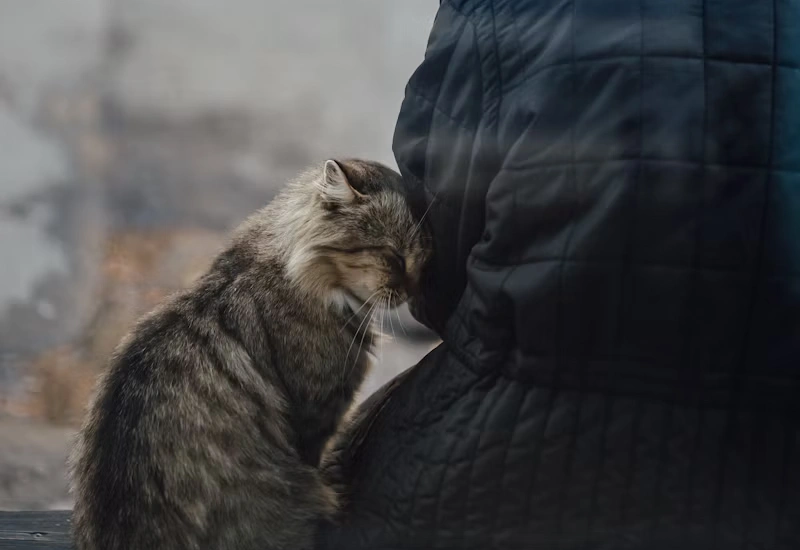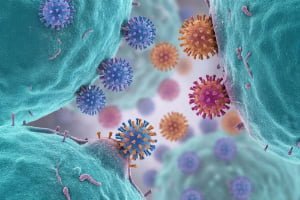Feline panleukopenia, also known as feline distemper, is a serious viral disease that poses a serious threat to your cat’s health. Once a cat develops the disease, the risk of recurrence is always present, even if it recovers. Therefore, it is crucial to prevent a recurrence of feline panleukopenia. Below, we will discuss how to effectively prevent the recurrence of feline panleukopenia.
The characteristics of feline distemper virus
First, we need to understand the characteristics of feline distemper virus. Feline distemper virus is highly contagious and has a long incubation period, and the virus can be transmitted through direct contact with the secretions and faeces of infected cats as well as objects contaminated with the virus. Therefore, the first step in preventing the recurrence of feline distemper is to ensure that the cat lives in a clean and hygienic environment. Regularly clean the cat’s living environment, including the litter tray, food bowl and water bowl, to keep it dry and tidy. At the same time, be careful to avoid contact between the cat and sick or unvaccinated cats to reduce the risk of infection.
Measure to prevent recurrence of feline panleukopenia
Secondly, vaccination is a key measure to prevent recurrence of feline distemper. Cats should be vaccinated against feline distemper at an early age and follow the recommendations of the veterinarian for regular booster immunisation. The vaccine will help the cat to develop immunity against the distemper virus. Please note that even if the cat has been vaccinated, the possibility of recurrence cannot be completely ruled out, so daily prevention is still required.
Improving the cat’s immunity
In addition, improving the cat’s immunity is also an important means of preventing recurrence of feline panleukopenia. The cat’s diet should be balanced and nutritious to meet the needs of its growth and development and immune system. At the same time, appropriate exercise also helps to strengthen the cat’s physique and immunity. During the cat’s illness or recovery, appropriate nutritional supplements and medication can be given according to the veterinarian’s advice to speed up recovery and improve immunity.
Attention to the cat’s health
Finally, close attention to the cat’s health is also an important part of preventing the recurrence of feline panleukopenia. Once the cat is found to have symptoms such as loss of appetite, depression, vomiting, diarrhoea, etc., it should be promptly examined by a doctor for early detection and treatment of feline distemper. After the cat recovers, it is still necessary to bring it for regular medical check-ups to ensure that it is in good health.
In conclusion, preventing the recurrence of feline panleukopenia requires us to start from several aspects, including keeping the cat’s living environment clean and hygienic, regular vaccination, improving the cat’s immunity and paying close attention to the cat’s health condition. Only in this way can we create a healthy and happy living environment for cats and keep them away from the threat of feline distemper. At the same time, we should also pay attention to the mental health of cats and give them enough love and companionship so that they can thrive under our care.
Preventing the recurrence of feline panleukopenia is a comprehensive task involving multiple aspects of management and care. Here are some key measures:
Vaccination
This is the first and foremost measure to prevent recurrence of feline panleukopenia. Regularly vaccinate your cat with weak or inactivated vaccines to boost its immunity. Vaccination should be carried out in accordance with the recommendations of the veterinarian and ensure that the vaccination programme is implemented in full.
Strengthen feeding management
Provide a balanced and nutritious diet to ensure the cat receives sufficient nutrition and energy to maintain a healthy immune system. At the same time, avoid exposing the cat to animals or environment that may carry the virus.
Pay attention to environmental hygiene
Keep the cat house and the cat’s living environment clean and hygienic, and regularly clean items such as litter boxes, food bowls and water bowls. In addition, regularly disinfect the cat’s living supplies and living environment to reduce the risk of virus transmission and infection.
Avoiding stress
Minimise stress factors for cats, such as frequent changes of environment and contact with unfamiliar animals. Stress may lead to a decrease in the cat’s immunity, thus increasing the risk of recurrence.
Regular medical check-ups
Take your cat to the veterinarian for regular medical check-ups to identify and deal with any health problems in a timely manner. The veterinarian will assess the overall health of the cat and give appropriate advice and treatment options.
It should be noted that even with the above preventive measures, there is no complete guarantee that the cat will not relapse into feline panleukopenia. Therefore, as soon as you notice symptoms in your cat, you should seek immediate medical attention and follow your veterinarian’s treatment recommendations. With timely treatment and care, most cats are able to recover and reduce the risk of recurrence.
About Antigenne
SaberVet Antigenne, holding the banner of enjoying living together with animals and protecting the health both of animals and humans, is dedicated to building a harmonious society for humans and animals. Insisting on the values of innovation, honesty and integrity, sticking to the principle of “quality is the cornerstone of future existence.” through innovative products and dimensional services, Antigenne is looking forward to cooperating with you and expecting to create a bright future with a win-win result. Together, we can make a difference. Contact Antigenne now and let’s unlock the future of animal health.




